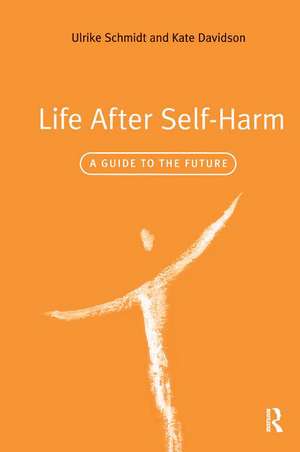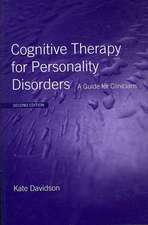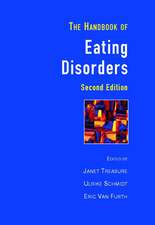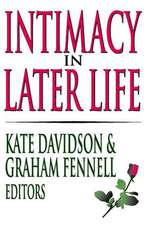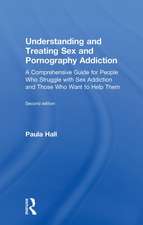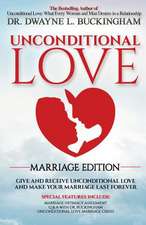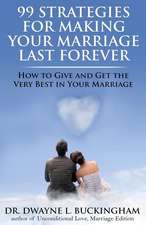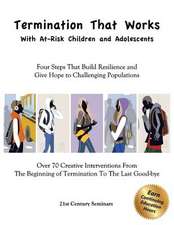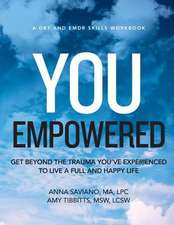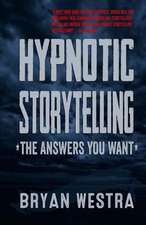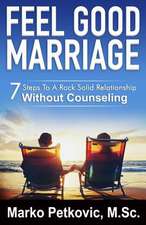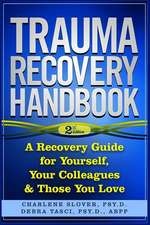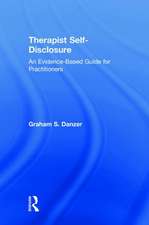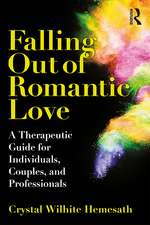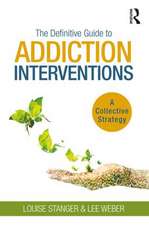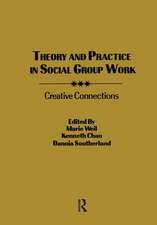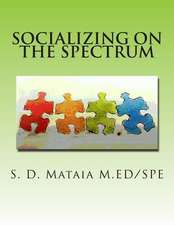Life After Self-Harm: A Guide to the Future
Autor Ulrike Schmidt, Kate Davidsonen Limba Engleză Hardback – 26 iul 2016
Life After Self-Harm: A Guide to the Future is written for individuals who have deliberately harmed themselves. Developed through a major research project the contents of the manual have been informed and shaped by many users and expert professionals. Illustrated with multiple case-histories, it teaches users important skills:
- for understanding and evaluating self-harm
- for keeping safe in crisis
- for dealing with seemingly insolvable problems
- for developing coping strategies
- for re-connecting with life.
| Toate formatele și edițiile | Preț | Express |
|---|---|---|
| Paperback (1) | 147.80 lei 6-8 săpt. | |
| Taylor & Francis – 18 mar 2004 | 147.80 lei 6-8 săpt. | |
| Hardback (1) | 721.16 lei 6-8 săpt. | |
| Taylor & Francis – 26 iul 2016 | 721.16 lei 6-8 săpt. |
Preț: 721.16 lei
Preț vechi: 985.04 lei
-27% Nou
Puncte Express: 1082
Preț estimativ în valută:
137.99€ • 144.09$ • 113.95£
137.99€ • 144.09$ • 113.95£
Carte tipărită la comandă
Livrare economică 15-29 aprilie
Preluare comenzi: 021 569.72.76
Specificații
ISBN-13: 9781138146037
ISBN-10: 113814603X
Pagini: 120
Dimensiuni: 156 x 234 x 13 mm
Greutate: 0.45 kg
Ediția:1
Editura: Taylor & Francis
Colecția Routledge
Locul publicării:Oxford, United Kingdom
ISBN-10: 113814603X
Pagini: 120
Dimensiuni: 156 x 234 x 13 mm
Greutate: 0.45 kg
Ediția:1
Editura: Taylor & Francis
Colecția Routledge
Locul publicării:Oxford, United Kingdom
Public țintă
General and Professional Practice & DevelopmentCuprins
Major Health Warning. Note to Health Care Practitioner. Part I: Getting Started. Introduction. You are Not Alone. Why do People Harm Themselves? Trying to Understand Your Reasons for Harming Yourself. Is There Anybody Out There? Further Thoughts. What Next? Part II: What to Do in a Crisis. Getting Support. Keeping Yourself Safe. Trying Not to Slide Down into a Pit of Loneliness and Despair. Things I Still Want to Do. Crisis Plan. Part III: Learning to Solve Problems. Help! My Life is a Mess. Learning to Disentangle Your Problems. Step 1: Finding Possible Solutions Through Brainstorming. Step 2: Looking at Options in Detail. Step 3: Choosing a Solution that Fits You. Step 4: Finding Ways of Putting Your Solution into Practice. Step 5: Carry Out Your Plan Step by Step. Step 6: Check Progress in Problem Solving. Part IV: Learning to Change Your Thinking. Let's Make a Start by Looking at Moods. Linking Feelings and Thoughts. A Thought is Not a Fact: Learn to Recognize Skewed Thinking. Where Does This Kind of Skewed Thinking Come From? The Memory Trap or: Why Does my Thinking Overwhelm Me? Starting a Thought Record. How to Challenge Biased Thinking. Part V: Alcohol, Drugs and Pills: Do You Need to Cut Down or Stop? Should You be Worried About Your Alcohol Intake? Have the Guts to Stop or Cut Down Drinking. Should You be Worried About Your Drug Intake? Should You be Worried About Your Consumption of Tranquillizers or Sleeping Tablets? How to Deal with Sleeping Difficulties. Part VI: Some Further Thoughts. What Can You Learn From the Past? What if You Found Yourself Slipping Again? "If Only..." From Change to Accepting. What Cannot be Changed.
Notă biografică
Ulrike Schmidt is a Consultant Psychiatrist at the Maudsley Hospital and Senior Lecturer at the Institute of Psychiatry, London.
Kate Davidson is a Consultant Clinical Psychologist in Greater Glasgow Primary Care NHS Trust. She is currently Director of the Glasgow Institute of Psychosocial Interventions.
Kate Davidson is a Consultant Clinical Psychologist in Greater Glasgow Primary Care NHS Trust. She is currently Director of the Glasgow Institute of Psychosocial Interventions.
Recenzii
"Although this is written for patients, I found this to be a valuable resouce for A and E nurses, providing an insight into understanding the complexities surrounding self-harm and suggesting a way forward for those who self-harm. This is a fascinating approach which I feel will be of great interest to A and E nurses and prove to enhance their knowledge base on the subject however experienced they are." - Stephanie Davis, Accident and Emergency Nursing Journal
'Although this is written for patients, I found this to be a valuable resouce for A and E nurses, providing an insight into understanding the complexities surrounding self-harm and suggesting a way forward for those who self-harm. This is a fascinating approach which I feel will be of great interest to A and E nurses and prove to enhance their knowledge base on the subject however experienced they are.' - Stephanie Davis, Accident and Emergency Nursing Journal
Deliberate self harm is an enormous problem - for those who harm themselves, for their family and friends and for the health care practitioners who seek to help them through their crises. This book, addressed directly to the suicidal client, provides a step-by-step guide for them to use to navigate their way through their crisis and out the other side. In doing so it gives an invaluable resource for clinicians. The case examples will allow many suicidal people to know that they are not alone. It is founded on the best evidence for what suicidal people find most helpful in these circumstances. - Mark Williams, University of Oxford
'Although this is written for patients, I found this to be a valuable resouce for A and E nurses, providing an insight into understanding the complexities surrounding self-harm and suggesting a way forward for those who self-harm. This is a fascinating approach which I feel will be of great interest to A and E nurses and prove to enhance their knowledge base on the subject however experienced they are.' - Stephanie Davis, Accident and Emergency Nursing Journal
Deliberate self harm is an enormous problem - for those who harm themselves, for their family and friends and for the health care practitioners who seek to help them through their crises. This book, addressed directly to the suicidal client, provides a step-by-step guide for them to use to navigate their way through their crisis and out the other side. In doing so it gives an invaluable resource for clinicians. The case examples will allow many suicidal people to know that they are not alone. It is founded on the best evidence for what suicidal people find most helpful in these circumstances. - Mark Williams, University of Oxford
Descriere
Life After Self-Harm: A Guide to the Future is written for individuals who have deliberately harmed themselves. Developed through a major research project the contents of the manual have been informed and shaped by many users and expert
